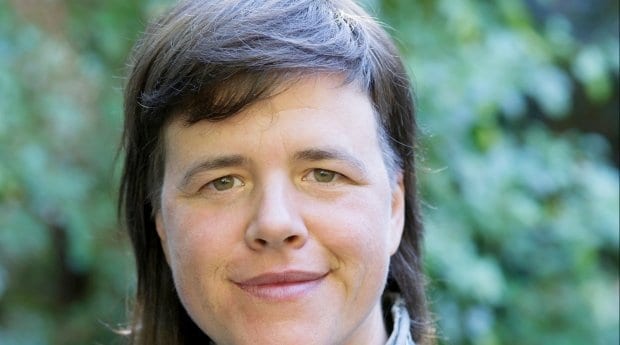“This is the weirdest art project I’ve ever done,” says Heidi Nagtegaal of her decision to run with COPE for the Vancouver School Board.
For Nagtegaal, there are obvious parallels between her work as an artist and her work as a politician. “All of it is addressing what is means to be a community, what it means to relate to each other, to engage with each other.”
Eight years ago, Nagtegaal began laying the roots for what would become the Hammock Residency, a space for artists to focus on the process of making art. Working on bigger, more overtly social projects through her residency programs gave her new perspectives on what it means to be a solo artist. She realized that all her work has been collaborative, a concept she hopes to take into municipal politics.
It was also eight years ago that she began her career as a support worker with the Vancouver School Board. She describes the work she does as plugging holes — making schools more accessible and safer for non-normative students.
“I go through the school system and watch the systemic oppression happening on so many levels — bullying, racism, gender oppression, sexual oppression, discrimination, learning disabilities,” she says. “When I was asked to put my name forward for COPE, I didn’t want to do it because I’m not comfortable with that, because I didn’t want to be in government, but I knew all the policies, and I had helped create some of those policies, and I knew the platform in and out and I totally believed in it.”
A big part of the policies Nagtegaal has helped create focus on expanding the conversation of inclusivity for schools. She’s thankful for the work the Vancouver School Board has already done to create safer spaces for queer and gender-nonconforming youth, but her firsthand experience with students has shown her that work needs to go deeper.
“We can be a lot more radical in our schools, and not because we’re trying to be radical or expose our children to weird things, but because kids are genderqueer,” she says. “Kids are really aware of all these things and want to know and don’t want to be confused.”
For Nagtegaal, being more radical means doing away with essentialist teachings in classrooms. Teaching students that boys can be tender and sensitive and girls can be strong is important but still enforces the gender binary. “The idea of having boys and girls, boys’ bathrooms and girls’ bathrooms, boy things and girl things — and then expecting them to realize that there’s more than two sexes, there’s more than two genders. It’s a lot to ask of a child.”
Nagtegaal recalls being eight years old and telling her father she was pansexual and genderqueer, though she wouldn’t learn the terminology until she was in her early 30s. Now she works alongside students who are realizing their own gender identity at a young age and are struggling to understand it and have it recognized.
“Part of the education is for teachers, too, because you only know what you know. It’s great that I’m gay and I know what it’s like from the inside, but if I didn’t have to experience what I’ve experienced, I would not have,” she says. “It’s not okay to be told you don’t exist when you’re living in your body, knowing you exist.”

 Why you can trust Xtra
Why you can trust Xtra


